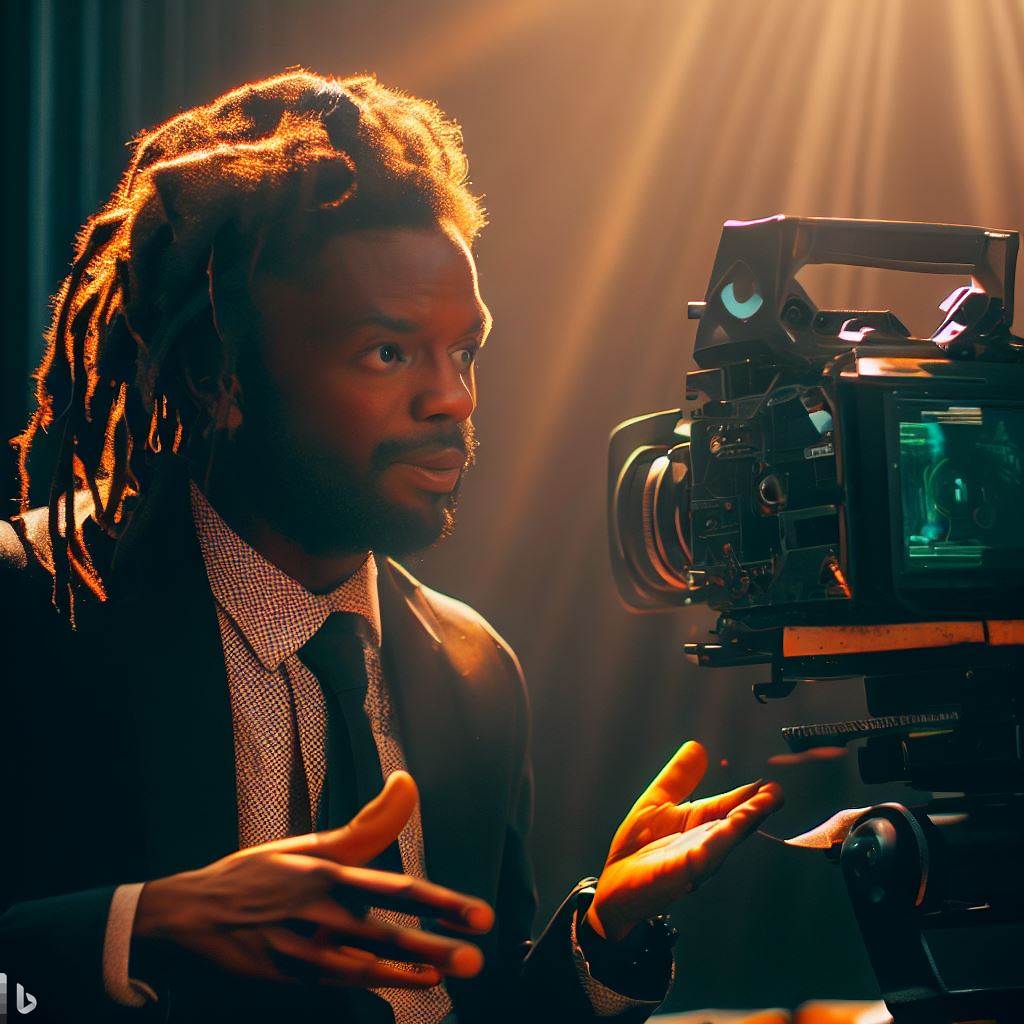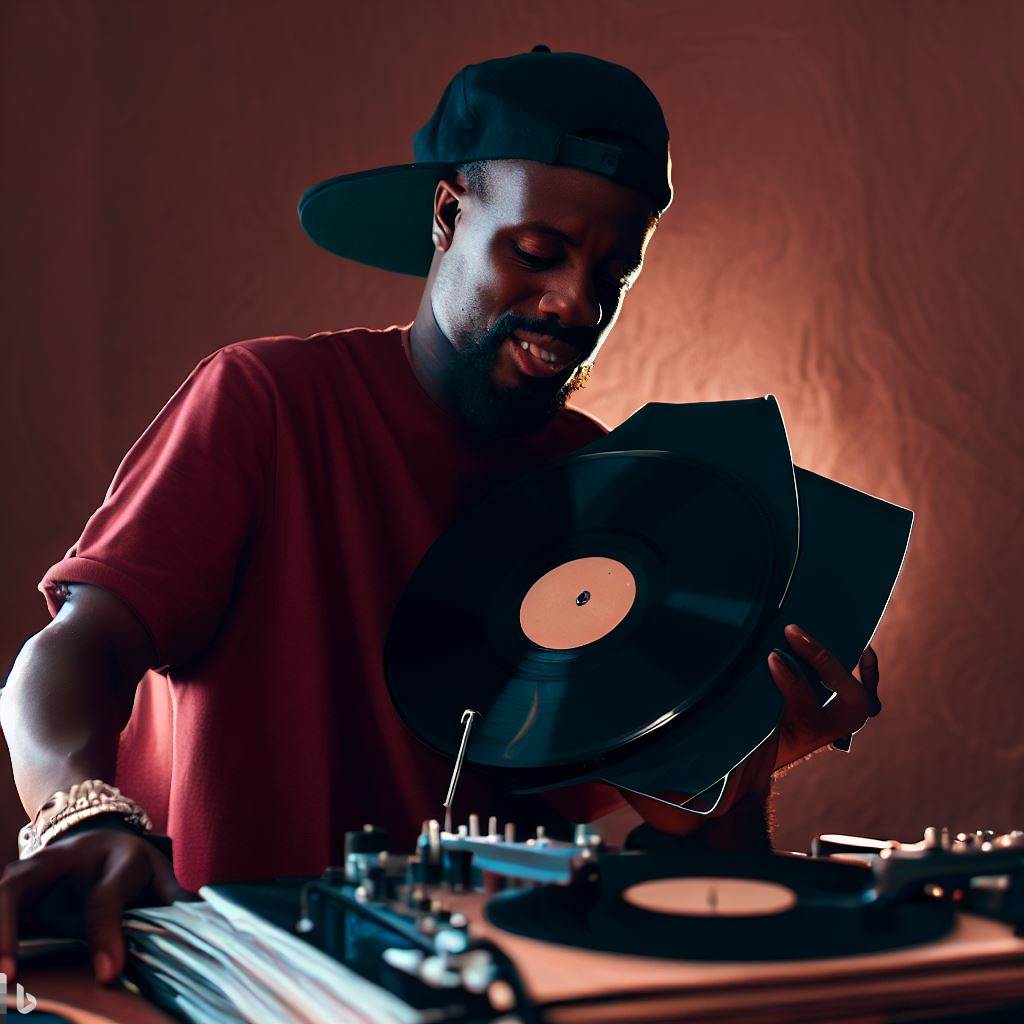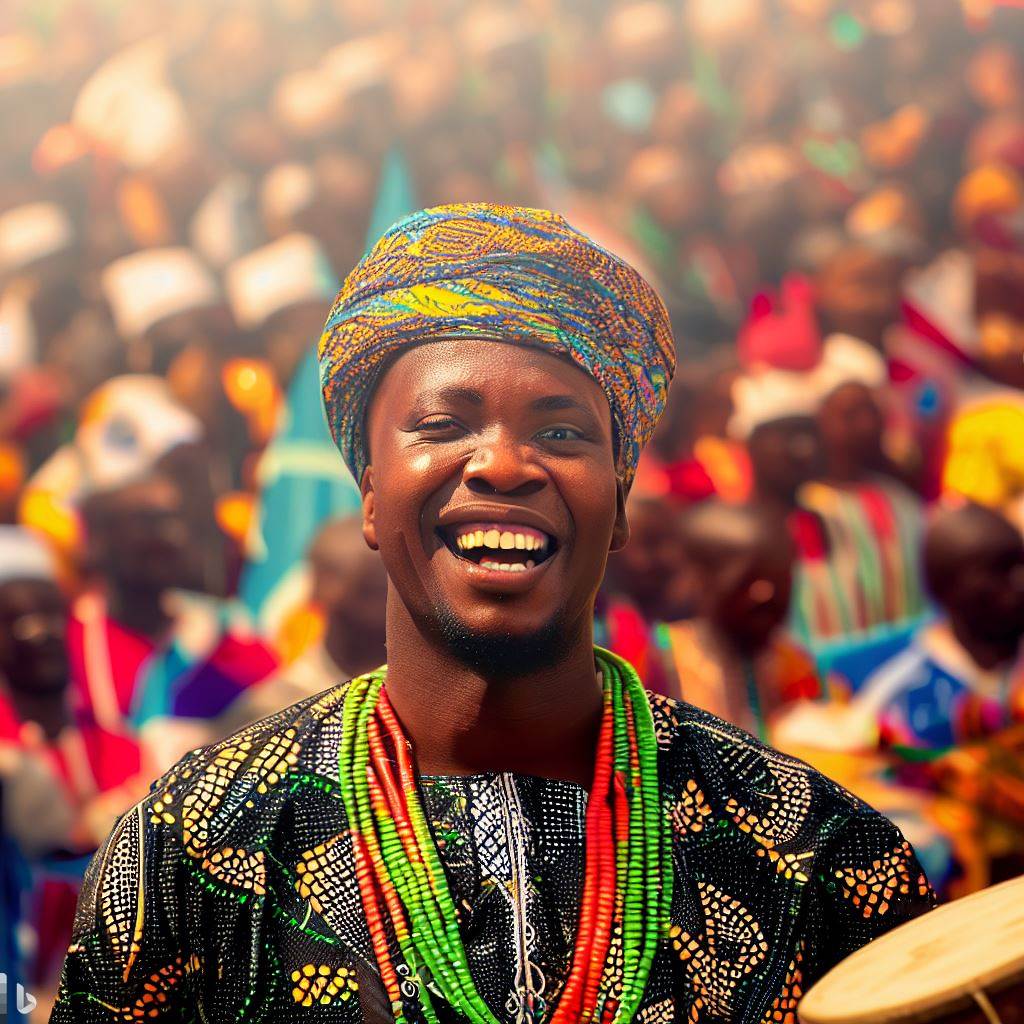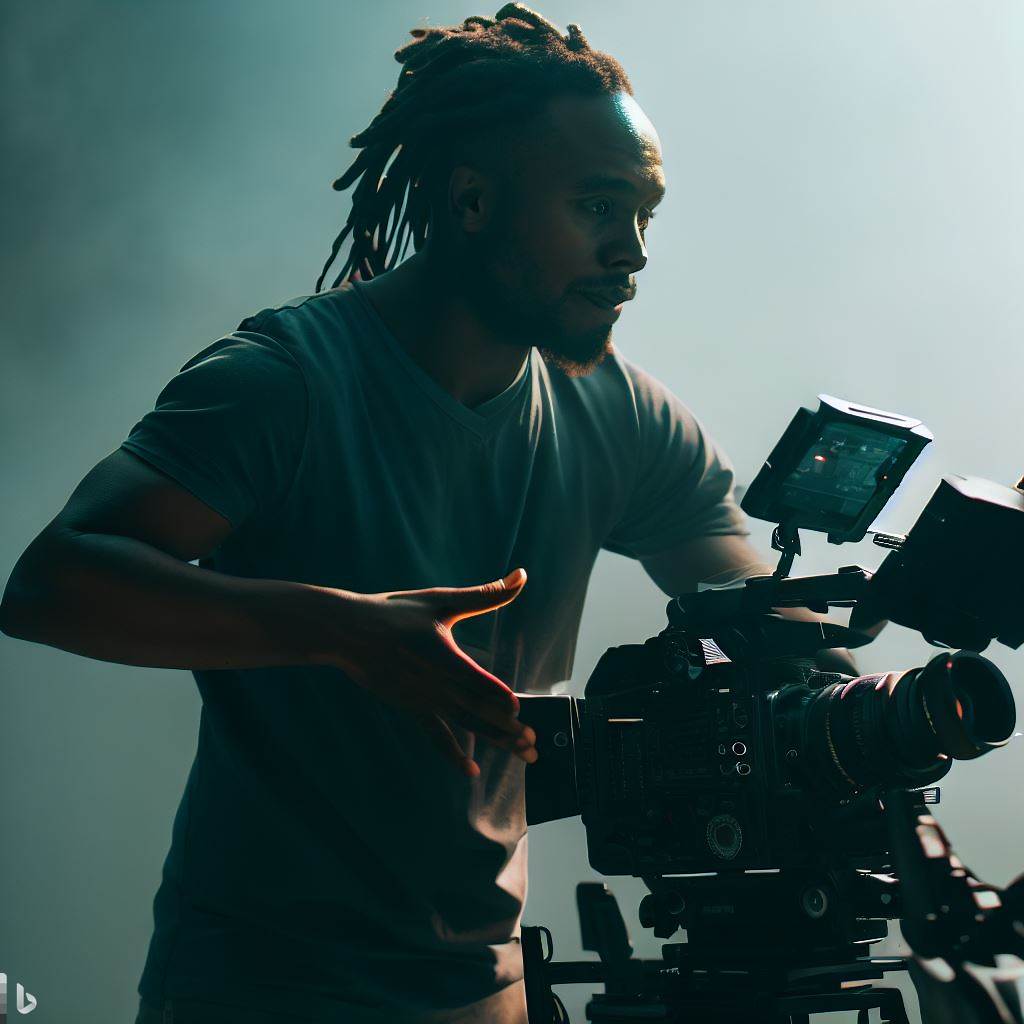Introduction
Nigerian cinematographers play a crucial role in the film industry, shaping the visual narrative of movies.
With their skills in capturing stunning imagery, cinematographers bring stories to life on the big screen.
Cinematography not only adds aesthetics to films but also enhances storytelling by creating atmosphere, mood, and emotion.
It is a critical element that can make or break a movie’s impact on the audience. Nigerian cinema has seen significant growth in recent years, with talented cinematographers making their mark in the industry.
These creative individuals possess a deep understanding of lighting, composition, and camera movements, which they employ to deliver captivating visual experiences.
Through their work, Nigerian cinematographers contribute to the cultural and artistic heritage of the country, showcasing its diversity, talent, and unique storytelling.
Their mastery of visual storytelling techniques has garnered international recognition, shining a spotlight on Nigeria’s film industry.
As we delve into this in-depth review, we will explore the work of top Nigerian cinematographers, their unique styles, and their contributions to the growth of Nigerian cinema.
Why Nigerian Cinematographers Deserve Recognition
A. Growing influence of Nigerian cinema on the global stage
Nigerian cinematographers have made significant contributions to the film industry, deserving recognition for their talent and skills.
With the growing influence of Nigerian cinema on the global stage, these cinematographers have played a vital role in shaping the visual aesthetics of Nigerian films.
B. Role that cinematographers play in shaping the visual aesthetics of Nigerian films
- Akin Alabi: A renowned Nigerian cinematographer, Akin Alabi has worked on various critically acclaimed films, contributing to their visual appeal.
- Yinka Edward: Known for his unique style and attention to detail, Yinka Edward has worked on numerous Nigerian films, showcasing his exceptional cinematography skills.
- Jonathan Kovel: With his expertise in capturing breathtaking visuals, Jonathan Kovel has been instrumental in creating stunning cinematic experiences for Nigerian audiences.
- Remi Adefarasin: As one of the most influential Nigerian cinematographers, Remi Adefarasin has worked on both Nigerian and international productions, earning him global recognition.
- Tunde Kelani: With his artistic approach to cinematography, Tunde Kelani has become a prominent figure in Nigerian cinema, adding depth and beauty to every frame.
Nigerian cinematographers not only bring a distinct visual style to their work but also play a crucial role in showcasing the vibrant Nigerian culture on the global stage.
Through their lenses, they capture the essence of Nigerian stories, showcasing the rich cultural heritage, traditions, and diversity of the country.
Furthermore, Nigerian films have gained international acclaim in recent years, attracting the attention of audiences worldwide.
The rise of Nollywood, the Nigerian film industry, has led to an increased demand for Nigerian films on the global stage.
This growing influence has provided Nigerian cinematographers with opportunities to showcase their skills to a broader audience.
Cinematographers are responsible for translating the director’s vision into captivating visuals.
They utilise various techniques such as framing, lighting, and camera movements to create the desired mood and atmosphere in a film.
Nigerian cinematographers, with their innovative approach, have contributed significantly to the visual aesthetics of Nigerian films.
Criteria for Evaluating the Top Nigerian Cinematographers
In this section, we will explore the criteria used for evaluating the top Nigerian cinematographers.
These factors have been carefully considered to ensure a comprehensive review of their skills and expertise.
A. Factors that were considered in selecting the top cinematographers
- Technical Skills: One of the crucial factors in selecting the top cinematographers is their technical proficiency.
A cinematographer must have a deep understanding of camera operations, lighting techniques, and composition. - Creativity: Creativity plays a vital role in cinematography, as it allows the cinematographer to bring their unique vision to life.
A top cinematographer should possess a creative mindset, enabling them to think outside the box and capture visually stunning moments. - Innovation: Being innovative sets cinematographers apart from the crowd. The ability to experiment with new techniques and embrace technological advancements is essential in today’s rapidly evolving film industry.
Now, let’s delve deeper into each criterion:
1. Technical Skills
To be considered a top Nigerian cinematographer, one must exhibit exceptional technical skills.
This includes a thorough knowledge of various camera models, lenses, and their functionalities.
Additionally, they should be adept at manipulating lighting to create the desired mood and atmosphere on screen.
The understanding of composition and framing is also vital to ensure visually appealing shots.
The top cinematographers have honed these skills through years of experience and continuous learning.
2. Creativity
Cinematography is an art form, and the creative input of a cinematographer can significantly enhance the visual narrative of a film.
The top Nigerian cinematographers possess a keen eye for detail, color, and aesthetics.
Their ability to think creatively enables them to capture compelling visuals that enhance the overall storytelling experience.
Creativity allows them to approach each project with a fresh perspective, resulting in breathtaking imagery.
3. Innovation
The film industry is continuously evolving with the advancement of technology.
The top cinematographers in Nigeria understand the importance of staying ahead of the curve.
They embrace new tools, techniques, and equipment that enhance their craft and push the boundaries of what is possible.
Innovation allows them to experiment with unconventional methods, resulting in visually striking imagery that captivates audiences.
The evaluation of the top Nigerian cinematographers is based on several criteria. Technical skills, creativity, and innovation are the three main factors in determining their excellence.
These cinematographers showcase their prowess through their technical knowledge, ability to think creatively, and willingness to embrace new advancements in the field.
The evaluation process ensures that only the best cinematographers are recognized for their contribution to the Nigerian film industry.
Read:The Future of PR: Trends in Nigeria’s PR Industry
Top Nigerian Cinematographers and Their Notable Works
Nigeria’s film industry, often referred to as Nollywood, is renowned for its exceptional cinematography.
This blog section highlights some of the top Nigerian cinematographers and their noteworthy contributions to the industry.
Cinematographer and their notable works
These top Nigerian cinematographers have played a significant role in elevating the quality of Nigerian films and showcasing the talent within the industry.
Through their exceptional work, they have not only captivated audiences but also inspired aspiring cinematographers.
- Tunde Kelani: Tunde Kelani is an iconic Nigerian cinematographer known for his exceptional storytelling skills.
His notable works include “The Narrow Path,” a visually stunning film that explores social issues and cultural heritage. - Yinka Edward: Yinka Edward is a talented cinematographer who has made his mark in Nollywood.
His notable works include “76,” a critically acclaimed film that portrays the challenges faced by a military officer during a coup in the 1970s. - Clarence Peters: Clarence Peters is a renowned cinematographer and music video director.
His exceptional work can be witnessed in numerous music videos, including P-Square’s “Personally” and Tiwa Savage’s “Eminado.” - James Adeyinka Asegun: James Adeyinka Asegun is a cinematographer who has left an indelible mark on Nollywood.
His notable works include “October 1,” a crime thriller set in 1960s Nigeria, which showcases his impeccable cinematography skills. - George Kallis: George Kallis is a cinematographer known for his captivating visuals and attention to detail.
His notable works include “Oloture,” a gripping film that delves into the dangerous world of human trafficking.
The Nigerian film industry boasts a plethora of talented cinematographers who continue to push boundaries and redefine the art of storytelling through visuals.
Their notable works serve as testaments to their creativity, skill, and passion for their craft.
As Nollywood Filmography continues to flourish, we can expect these cinematographers to contribute even more remarkable works to the industry.
Read:Animation Studios in Nigeria: A Director’s Guide
Unique styles and visual storytelling techniques
Nigerian cinematographers have distinct styles and approaches to create visually compelling narratives.
Each cinematographer brings their unique touch, resulting in extraordinary films and scenes.
Let’s explore some of these styles and analyse standout films.
A. Different styles and approaches utilized by the top Nigerian cinematographers
- Jonathan Kovel : Kovel is known for his innovative use of lighting techniques. In the film “The Figurine,” he expertly plays with shadow and light to create an eerie atmosphere that enhances the story’s supernatural elements.
- Tunde Kelani : Kelani is celebrated for his ability to capture the essence of Nigerian culture through his visuals. In “Maami,” he masterfully combines vibrant colors and traditional settings, transporting viewers to the heart of Nigerian traditions.
- James Adeyinka Awoyinfa : Awoyinfa excels in his skillful framing and composition. In the movie “The CEO,” he creates visually striking shots that not only showcase the characters but also convey their emotions through their surroundings.
- Yinka Edward : Edward is renowned for his attention to detail and meticulous planning. In “October 1,” he flawlessly captures the period setting, immersing the audience in Nigeria’s struggle for independence through his precise cinematography.
- Clarence Peters : Peters is a visionary in the world of music videos. His captivating visuals in “Johnny” by Yemi Alade garnered international acclaim and showcased his ability to tell a story through evocative imagery, enhancing the song’s meaning.
- Ademola Ariyo : Ariyo is known for his use of innovative camera movements. In “The Bridge,” he employs dynamic tracking shots to follow the characters’ journey and create a sense of urgency, heightening the film’s tension.
- Kabat Esosa Egbon : Egbon’s documentary-style approach to cinematography sets him apart. In “Fuelling Poverty,” he combines raw and gritty visuals, presenting a harsh reality while highlighting the resilience of the Nigerian people.
B. Analisis of specific scenes or films that showcase their exceptional skills
These examples highlight the exceptional abilities of Nigerian cinematographers in utilizing unique styles and visual storytelling techniques.
Their craftsmanship elevates storytelling, allowing viewers to experience narratives on a deeper, more engaging level.
By employing different lighting techniques, cinematographers like Jonathan Kovel create atmospheric scenes that enhance the story’s impact.
Tunde Kelani’s vibrant colors and traditional settings showcase Nigeria’s rich cultural heritage.
James Adeyinka Awoyinfa’s framing and composition add depth to characters and their emotions.
Yinka Edward’s attention to detail and meticulous planning transport viewers to specific time periods, while Clarence Peters’ music videos combine evocative imagery with meaningful storytelling.
Ademola Ariyo’s dynamic camera movements create a sense of urgency, and Kabat Esosa Egbon’s documentary style portrays reality with authenticity.
Lastly, John Demps’ ability to blend realism and fantasy creates visual experiences that leave a lasting impression.
These cinematographers have mastered the art of visual storytelling, solidifying their positions as the top Nigerian cinematographers.
The top Nigerian cinematographers employ unique styles and visual storytelling techniques that elevate the quality of their work.
Through their use of lighting, composition, colour, and movement, they create captivating visuals that breathe life into the stories they tell.
Cinematographers transformed Nigerian cinema with cultural narratives and dynamic music videos, setting new standards in cinematography.
Read:PR Specialist: Key Players in Nigeria’s Growth Story
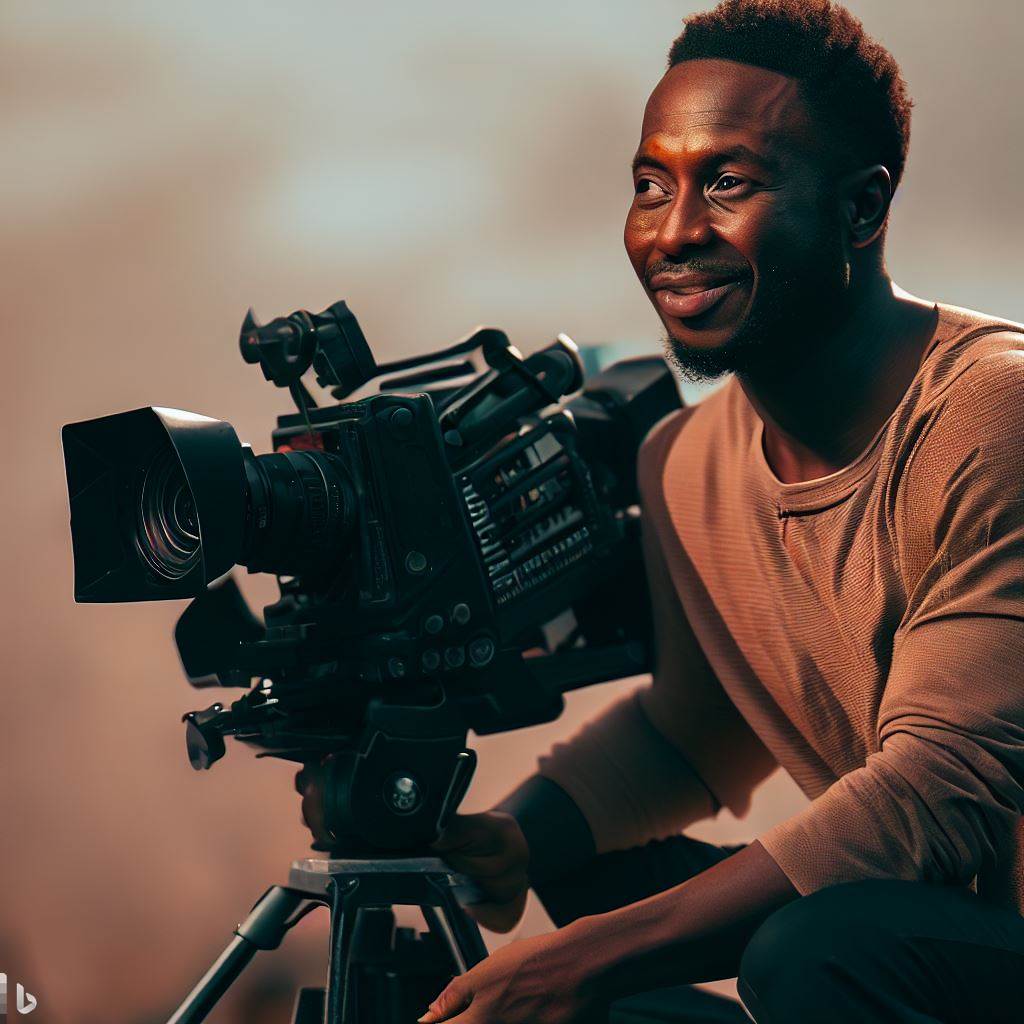
Impact on Nigerian Cinema
A. How these cinematographers have shaped the Nigerian film industry
The impact of top Nigerian cinematographers on Nigeria’s film industry cannot be underestimated.
These talented individuals have played a significant role in shaping the Nigerian film industry and have greatly influenced the overall quality and popularity of Nigerian films.
- Tunde Kelani: Known for his exceptional cinematography skills, Tunde Kelani has made a profound impact on Nigerian cinema. Through his creative vision, he has brought many Nigerian stories to life on the big screen.
- Kunle Afolayan: Afolayan’s work has not only garnered critical acclaim but has also helped elevate the status of Nigerian films on the international stage. His attention to detail and visual aesthetics have set him apart as one of Nigeria’s top cinematographers.
- Yinka Edward: Edward’s expertise in capturing stunning visuals has made him a renowned cinematographer in Nigeria. His work on notable films like “93 Days” and “The CEO” has contributed to the growing reputation of the Nigerian film industry.
- John Demps: Demps’ skill in cinematography has brought a unique perspective to Nigerian films. His work on movies like “Phone Swap” and “The Figurine” has been praised for its technical excellence and artistic vision.
- Akin Alabi: Alabi’s contribution to Nigerian cinema through his cinematography cannot be overlooked. Known for his experimental techniques, he has contributed to the advancement of the Nigerian film industry by pushing the boundaries of visual storytelling.
B. Examine their influence on the overall quality and popularity of Nigerian films
These cinematographers have undoubtedly shaped the Nigerian film industry in various ways.
Their expertise has contributed to the overall quality of Nigerian films, making them more visually appealing and engaging for audiences both locally and internationally.
Through their work, these cinematographers have raised the standard of Nigerian films, challenging traditional modes of storytelling and visual representation.
Their dedication to their craft has helped change the perception of Nigerian cinema, leading to increased recognition and appreciation globally.
Furthermore, their influence on the popularity of Nigerian films cannot be overstated.
The exceptional cinematography showcased in their work has attracted a larger audience both within and outside Nigeria, leading to a surge in the demand for Nigerian films.
These cinematographers have utilized their skills to tell captivating stories in a visually appealing manner.
Their contributions have not only boosted the reputation of Nigerian cinema but have also paved the way for aspiring cinematographers to explore new creative territories.
The impact of top Nigerian cinematographers on the Nigerian film industry cannot be ignored.
Their diverse talents and unique approaches to cinematography have shaped the industry and influenced the overall quality and popularity of Nigerian films.
Through their dedication and creativity, they have not only elevated Nigerian cinema but have also inspired future generations of cinematographers to continue pushing boundaries and telling captivating stories.
Read:Day in the Life: A Nigerian PR Specialist
Challenges Faced by Nigerian Cinematographers
Shed light on the obstacles and constraints faced by cinematographers in Nigeria
Nigeria has a growing film industry with talented cinematographers, but they face numerous obstacles and constraints.
- Limited resources: One major challenge for Nigerian cinematographers is the lack of adequate resources.
Many struggle to access modern film equipment, such as high-quality cameras, lenses, and lighting tools. This limitation affects the overall quality of their work and hinders their creativity. - Insufficient funding: Another significant challenge is the scarcity of funding opportunities for cinematographers. Nigerian filmmakers often struggle to find financial support for their projects, resulting in low-budget productions.
Limited funds restrict their ability to hire skilled crew members, rent suitable locations, and invest in post-production. - Technical support: Nigerian cinematographers also face a lack of technical support and expertise. The absence of experienced professionals in areas like editing, colour grading, and visual effects hampers the cinematographers’ progress.
Without proper guidance, they may struggle to achieve the desired visual aesthetics and technical precision in their films. - Inadequate training and education: Many cinematographers in Nigeria lack formal training and relevant education. Most learn on the job or through self-study, which can result in inconsistent skills and knowledge gaps.
The absence of specialised institutions or courses geared towards cinematography limits their growth potential. - Limited artistic freedom: Nigerian cinematographers often face restrictions on their artistic choices. Cultural and societal expectations may affect their ability to explore certain themes or push creative boundaries.
Filmmakers sometimes have to compromise their vision to fit into market demands or meet censorship regulations.
Nigerian cinematographers face numerous challenges, including limited resources, funding constraints, lack of technical support, and restricted artistic freedom.
These obstacles hinder their growth and impact the quality and reach of their work.
However, despite these challenges, their resilience and perseverance continue to contribute to the vibrant Nigerian film industry.
Conclusion
We can see that Nigerian cinematographers play a crucial role in the film industry.
Their talent and artistry bring stories to life and create memorable visual experiences.
It is important to recognize and appreciate their contributions.
By exploring the works of these talented individuals, we not only support their careers but also gain a deeper understanding of Nigerian culture and storytelling.
The films they create have the power to educate, entertain, and inspire audiences worldwide.
So, let’s not overlook the brilliance of Nigerian cinematographers.
Take the time to watch their films, appreciate their unique vision, and support their endeavors.
Together, we can celebrate their talent and contribute to the growth of Nigerian cinema.

